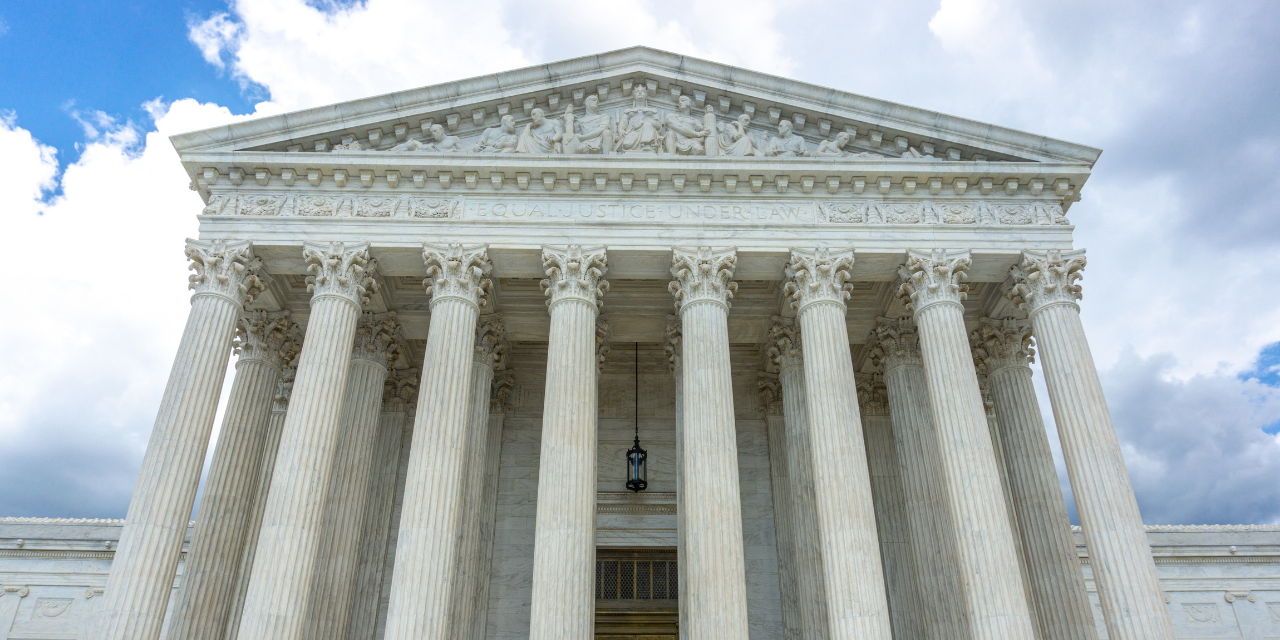The legal battles over the Biden administration’s attempt to impose vaccination requirements on various segments of the nation’s workers has landed at the U.S. Supreme Court. After a ruling from the 6th U.S. Circuit Court of Appeals last Friday that allows an emergency order from the Occupational Safety and Health Administration (OSHA) to go into effect in the new year, numerous trade organizations, state governments and private employers, including religious organizations, have asked the nation’s high court to step in and reverse the 6th Circuit, at least temporarily.
The OSHA vaccination mandate, also known as an Emergency Temporary Standard (Mandate or ETS), was issued on November 4 after a request to do so from President Biden. The ETS forces large employers with 100 or more employees to require COVID-19 vaccinations, or in the alternative, for mandatory masking and weekly testing of the unvaccinated. Employees who refuse both options will lose their jobs.
The ETS covers over 80 million American workers. Violations can cost employers nearly $14,000 in fines for each infraction.
Lawsuits challenging the ETS were quickly initiated in multiple federal circuit courts. On November 11, the 5th Circuit issued a “stay” blocking the Mandate from going into effect, calling it “fatally flawed.” However, because of the rules governing multiple circuit litigation, OSHA asked for the lawsuits to be consolidated in one circuit selected by lottery, and the 6th Circuit was chosen. That’s what led to the highly unusual situation last Friday of one federal circuit overruling another.
Generally speaking, employers challenging the Mandate argue that OSHA lacks the authority to issue the ETS. Created in 1970 following passage of the Occupational Safety and Health Act (OSH Act), OSHA is charged with dealing with “workplace-specific” threats, not threats common to the population at large. The 5th Circuit largely agreed with that argument along with citing other violations of the OSH Act committed by OSHA in its issuance of the Mandate.
But numerous religious organizations are also challenging the Mandate, and they additionally allege that the ETS violates the First Amendment as well as the federal Religious Freedom Restoration Act of 1993 (RFRA). Many of these religious plaintiffs are represented by attorneys with Alliance Defending Freedom (ADF).
In an Emergency Application for Stay filed with the Supreme Court on the same day as the 6th Circuit’s ruling, seven religious plaintiffs argued that the Mandate substantially burdens their free exercise of religion, and interferes with their religious autonomy by impacting their employment decisions, an area generally held sacrosanct under the high court’s First Amendment religion clause rulings.
“OSHA will interfere with Religious Institutions’ internal management and employment decisions, and substantially burden their faith,” the Emergency Application states. “And it will force Religious Institutions to incur significant costs and divert resources away from their mission of preaching the Gospel and living out their faith. That is an abuse of executive power.”
ADF Senior Counsel Ryan Bangert commented on the filing of the Emergency Application in a press release.
“The government has no authority to unilaterally treat unvaccinated employees like workplace hazards akin to asbestos or toxic chemicals, or to compel employers to carry out the government’s unlawful national vaccine mandate,” Bangert said. “The profoundly negative effect of this upon those employers and the 80 million American workers who are impacted is just one reason the Supreme Court immediately should halt enforcement of the mandate. The Biden administration’s decision to mandate vaccines through an OSHA emergency rule is the height of government overreach.”
In response to the litigation and the recent ruling from the 6th Circuit, OSHA announced it is slightly delaying implementation of the ETS.
“To account for any uncertainty created by the [5th Circuit’s] stay, OSHA is exercising enforcement discretion with respect to the compliance dates of the ETS,” the OSHA statement reads. “To provide employers with sufficient time to come into compliance, OSHA will not issue citations for noncompliance with any requirements of the ETS before January 10 and will not issue citations for noncompliance with the standard’s testing requirements before February 9, so long as an employer is exercising reasonable, good faith efforts to come into compliance with the standard. OSHA will work closely with the regulated community to provide compliance assistance.”
Several other religious plaintiffs, represented by attorneys with First Liberty Institute, have filed a similar emergency request with the high court.
All of the emergency requests stemming from the 6th Circuit’s ruling go to Associate Justice Brett Kavanaugh in the first instance, who oversees such requests from that particular circuit. He can either rule on those requests himself or refer them to the entire court for a ruling. Kavanaugh has ordered OSHA to respond to the emergency requests by December 30.
The case is In re: OSHA Rule on COVID-19 Vaccination and Testing.
Photo from Shutterstock.






